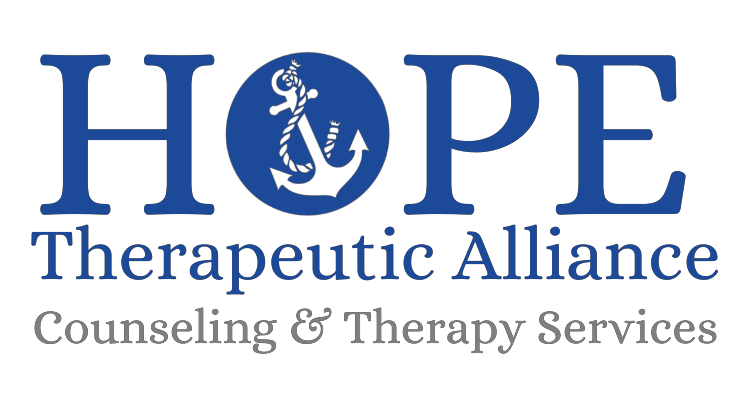Couple’s Therapy in San Antonio and Schertz: Healing the Distance, One Session at a Time
What to Expect from Couple’s Therapy
As we know, couples don’t usually walk into therapy because everything is going great. Research shows that couples wait an extended amount of time (normally 3 to 6 years) before seeking professional help for their relationship. So when couples finally seek therapy, they come in because they’re hurting. Because something or everything they try isn’t working. Because the silence is too loud. Because the same fight keeps happening over and over. Because the love is still there, but it’s buried under layers of resentment, miscommunication, and unmet needs.
Couple’s therapy can feel like the final straw to save a failing relationship, and that is a scary place to be in. But if you’re reading this, you’ve probably already realized that something needs to change in your relationship. You’re tired of spinning your wheels, and you’re wondering if therapy can help. The short answer? Yes, it absolutely can. And in our current society—where the pace of life is fast, but the pain of disconnection is even faster—couple’s therapy may just be the lifeline your relationship needs.
Here’s what you can expect if you decide to invest in your relationship with HOPE, what’s actually going to happen in the room with us, and how couple’s therapy just might change everything for the better.
Why Do Couples Seek Therapy?
Couples come to therapy for a lot of different reasons. Some are navigating betrayal. Some are trying to co-parent with more peace or blend their family. Some find that communication has been a constant battle. Some couples can’t get on the same page about intimacy, money, or other priorities. Others just feel like roommates, and they don’t know when or how the shift happened.
Here’s what’s true no matter what your relationship status is: disconnection hurts. Whether your issues are loud (like constant fighting) or quiet (like avoiding each another altogether), the pain is still real. And it doesn’t usually go away on its own.
At HOPE, we see couples dealing with conflicts in communication, shifting family dynamics, learning to trust again after heartbreak, and everything in between. The specifics vary, but the heart of the issue remains the same—you want to feel seen, valued, and understood by the person you chose to walk through life with. You want to feel like a team again.
Your First Couple’s Session: What Actually Happens?
Couple’s therapy is not about airing all your dirty laundry on day one. That first session is more about mapping out where you’ve been, where you are now, and where you want to go.
You’ll spend time talking about your relationship history, the problems you’ve been facing, and what both of you hope to get out of therapy. Your couple’s therapist isn’t there to take sides. This isn’t a courtroom. It’s a safe, neutral space where both voices matter.
We will listen to your love story with intention. As a result, most couples leave that first session feeling lighter. Why? Because they finally said out loud what they’ve been holding in for too long. Because someone heard them—both of them—without judgment. And that’s the beginning of change.
How Your Therapy Journey is Built to Fit You
No cookie-cutter plans will happen here—you will get a treatment plan that reflects your actual life. We look at the root issues, not just the symptoms. And we build something that’s workable, realistic, and uniquely suited to your relationship.
Your therapist might use tools from the Gottman Method (we’ll talk more about that in a second), create structured communication exercises, or set up weekly check-ins to help you practice what you’re learning outside of the session. Everything we do is aimed at helping you grow—not just individually, but together.
Frequency Matters: Why Weekly Couple’s Therapy Sessions Work Best
Healing takes momentum. That’s why we recommend starting with weekly sessions, especially in the early stages. When couples wait too long between sessions, it’s easy to lose steam. Life gets busy. Fights happen. And then you’re not just picking up where you left off—you’re starting over.
Consistent, focused sessions help you stay on track, address issues while they’re still fresh, and build new habits that you actually remember to use. Couple’s therapy isn’t just a space to vent. It’s a space to learn how to move forward differently. But that only works if you’re showing up regularly.
Think of it like going to the gym for your relationship. You wouldn’t work out once a month and expect immediate results, right? The same goes for emotional growth and relational repair.
Using the Gottman Method: Tools for Real-Life Change
So many of the couples we see say some version of, “We just don’t know how to talk to each other anymore.” Enter: The Gottman Method.
This evidence-based approach is like a roadmap for understanding what actually makes relationships succeed or fail. It’s grounded in over four decades of research (yes, real science!) and gives couples practical tools to communicate better, resolve conflict, build trust, and reconnect emotionally.
We use Gottman assessments to help us understand your strengths and struggles as a couple. Then we dive into what John and Julie Gottman call “The Sound Relationship House.” This framework helps couples build love maps (basically, how well you know your partner’s inner world), express fondness and admiration, and turn toward each other instead of away when things get tough.
Gottman work isn’t fluff. It’s practical, honest, and often the thing that turns “we’re barely holding on” into “we’re finally finding our way back to each other.”
Therapy Is Not a Last Resort—It’s a Brave First Step
If you’re waiting for things to hit rock bottom before seeking help, let this be your wake-up call. Therapy isn’t just for couples on the edge of breakup. It’s for couples who want to stop surviving and start thriving.
Whether you’ve been married for 20 years or dating for two, it’s never too early—or too late—to invest in your relationship. And if you’re in north central San Antonio, Schertz or a nearby city, help is closer than you think.
At HOPE, we don’t promise quick fixes. What we do offer is a space to grow, a plan that fits your needs, and therapists who truly care about helping you do the work. Unity is possible. Communication can be rebuilt. Love can feel safe again.
But like I tell my clients all the time—wanting change and being ready for it are two different things. If you’re ready, we’re here. And if we’re not the right fit, we’ll help you find someone who is.
If you are ready to reinvest in your relationship, schedule a free 15-minute consultation to begin couple’s therapy today.




